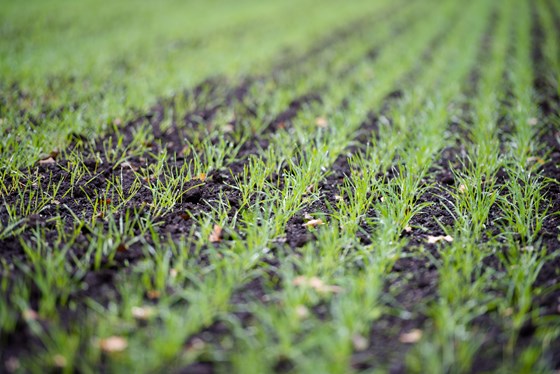News from the Field - March 2018
As I'm sure you're aware, we've had our fair share of rain so far this year, and the ground conditions really are pretty wet now. We've even brought the sheep off the fields earlier than usual and they will now stay in a warm, dry barn until after they've lambed in April.

Park Lane continues to flood in some parts, but I am pleased to report that I have had a meeting with the council about this which hopefully will rectify this issue. One of the benefits of living here for so long is that I know where most of the drains are, so I have shown the council exactly where the culvert lies on this particular stretch of road so that they can direct the Highways Team to clear this and hopefully divert the water off the road again. I wish the solution to diverting litter from the area was as easily addressed, but we are lucky to have the Methley Wombles who do a really great job at clearing up this constant problem.
In the fields, we have met with our agronomist to set the strategy for the year, looking at which weeds are growing in which fields, so we can plan our disease control and fertiliser applications accordingly. It’s always a balancing act between applying the least inputs we can to remain efficient, whilst keeping the crops healthy and free from competing weeds. That said, much of the milling wheat this year is going in the fields that we grew oilseed rape in last year, meaning that we have to watch that the crop doesn’t grow too quickly due to the good soil conditions! If it gets away too quickly it will become ‘leggy’ and get too tall, meaning that it topples over before it’s ready to harvest!
One new venture that I’m really pleased to be involved with is the new green manure we are importing from a local Anaerobic Digestion power plant. The facility uses micro-organisms to break down feed (this one runs on poultry litter mixed with various renewable crops such as tritcale), creating gas in the digestion process that is then fed into the national grid. Not only is this a sustainable way to re-use waste from the poultry industry, but the byproduct of this process is a nutrient-rich slurry which is separated into liquid and dry ‘digestate’. This is where we come in as we can use the dry digestate (or green manure) as a soil conditioner and will be incorporating it into our soil post-harvest this year, just like you would dig in compost in your garden. We can obtain a full analysis of it so we know exactly what nutrients it contains and are pleased to be making use of a local, green byproduct. This is a classic example of sustainable farming and is quite a common diversification for farms as it offers a solution for their own waste management whilst also providing an income stream from the sale of power, or indeed power for their own enterprises…if only we could find such a good solution for the weather!